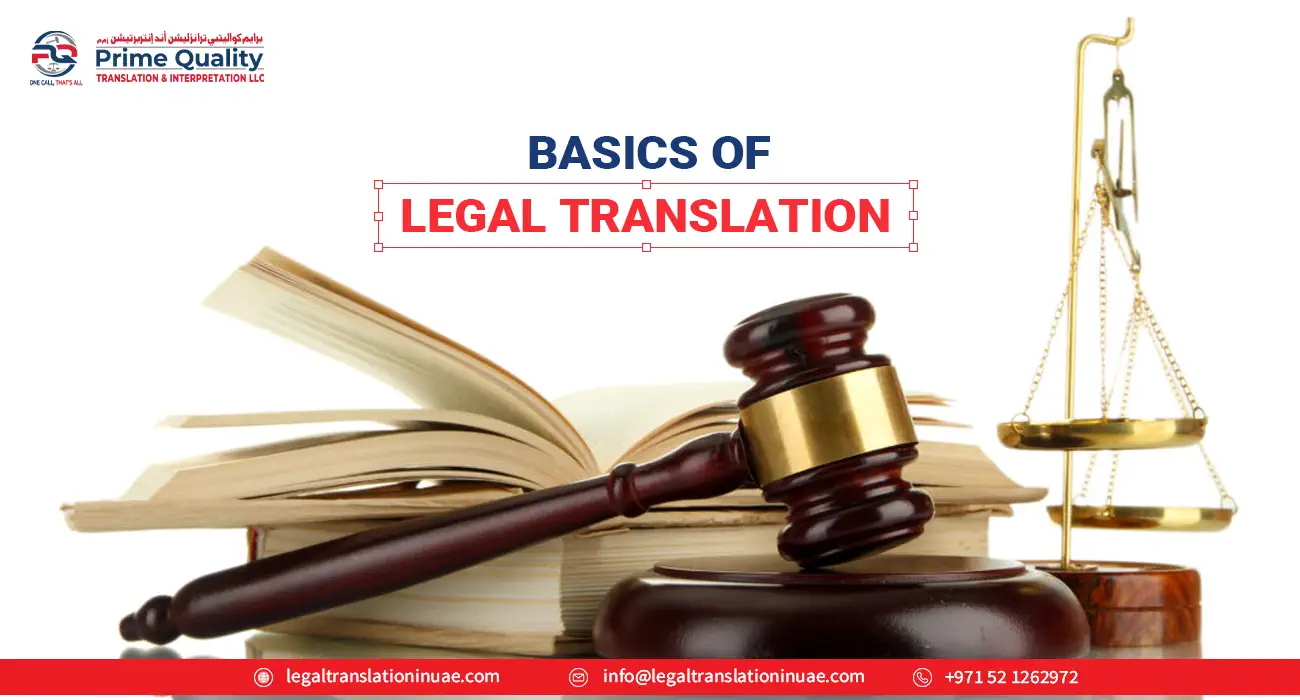Do you want to pursue a career in legal translation? Alternatively, you currently work in the field but want to sharpen your abilities. Look no further than Prime Quality Translation. In an increasingly globalized world, legal and certified translation plays a vital role in ensuring that the principles of justice and equity are upheld across linguistic boundaries. We will introduce you to the fundamentals of legal translation in this blog article.
Why Legal Translation is Important
Legal translation is essential to ensure proper communication within the legal area across linguistic obstacles. Legal and correct translations must be done, as even minor mistakes can have serious repercussions. To maintain the original text’s meaning and intent, precise translation is required for anything from contracts to court papers.
Misunderstandings, legal issues, and even miscarriages of justice may arise without accurate translation. Practical legal and accurate translation helps people and organizations successfully negotiate the complexity of the law by bridging the gap between various legal systems.
Types of Legal Documents that Require Translation
A variety of legal papers require accurate and legal translation. Typical forms include:
- Contracts
- Arrangements
- Registers
- Wills
- Court records
- Legal communication
These papers are indispensable for people, companies, and organizations to traverse legal procedures and guarantee proper cross-language communication successfully. Difficulties are associated with each form of document; translators must thoroughly understand legal jargon, context, and cultural quirks.
Challenges in Legal Translation
Translators dealing with legal and certified translation have certain obstacles to overcome to guarantee precise and efficient communication.
1. Words in Legal Terms
Specialized vocabulary that frequently needs a more straightforward translation in other languages is abundant in legal papers. Translators need to be familiar with this terminology and be able to interpret it or discover suitable synonyms accurately.
2. Cultural Variations
A nation’s legal systems are firmly ingrained in its culture. Translating culturally distinct ideas effectively can be challenging without a thorough grasp of both the source and destination cultures.
3. Deficiency
The adversary of a precise and lawful translation is ambiguity. Legal papers must be transparent, yet translating them may result in unintentional ambiguity. Translators need to negotiate these nuances carefully.
The Role of Legal Translators
Legal Translators are indispensable when it comes to bridging the linguistic divide in the legal field. In addition to being multilingual, we must be aware of the law and cultures. Among the essential functions they play are:
1. Interpreting Written Works
The most evident role is this one. Legal translators provide precise legal translations from one language to another while considering cultural sensitivity and legal accuracy.
2. Clarifying
During court proceedings, legal interpreters facilitate oral communication between parties who speak different languages by doing the following:
- Legal Proceedings
- Testimonies
- Discussions
3. Notarization and Certification
Legal translations may occasionally need notarizing or certification for courts or government agencies to accept them. These services are available from Prime Quality Translation to confirm the legitimacy of the translation.
Legal Documents and Their Types
Several papers are covered by the correct and legal translation, each with its difficulties. Papers that need to be translated include agreements, contracts, patents, wills, court papers, and legal communication, to name a few. Translators must be well-versed in legal language, context, and cultural subtleties to portray these papers’ meaning effectively.
Translators may ensure accurate and efficient cross-language communication by approaching each assignment with the essential skills of having a thorough grasp of the many forms of legal papers.
Critical Skills for Legal Translators
A few key competencies are necessary to succeed in accurate and trustworthy legal and accurate translation:
- Comprehending legal terms and concepts is essential to translate complicated legal writings effectively.
- To guarantee effective and clear communication, proficiency in both the source and target languages is essential. A keen eye for detail and proficient research abilities are also essential for navigating the complexities of various legal systems.
- Experience translating documents accurately and legally may significantly increase output and ensure consistency throughout the translation process.
The Legal Translation Process
It’s time to dive into the legal and trustworthy translation procedure when you have mastered language abilities and thoroughly understand legal terms. This requires several actions, including:
- Analyzing the source material in depth
- Looking up pertinent legal principles
- Recognising language or cultural quirks
Translators must skillfully craft the translation to guarantee correctness and coherence across the text. Editing and proofreading are essential to identifying mistakes or discrepancies before the final delivery.
Strategies for Effective Legal Translation
Several tactics may be used to guarantee precise and efficient translation.
- First and foremost, legal and accurate translation may be used to ensure consistency and significantly increase efficiency throughout the translation process.
- Doing an in-depth study on legal language, ideas, and cultural quirks is also essential.
- Translators should also prioritize communicating clearly and concisely to ensure that the intended message is effectively transmitted.
These techniques help legal translators deliver accurate translations that satisfy their customers’ requirements and help them understand the differences between various legal systems.


